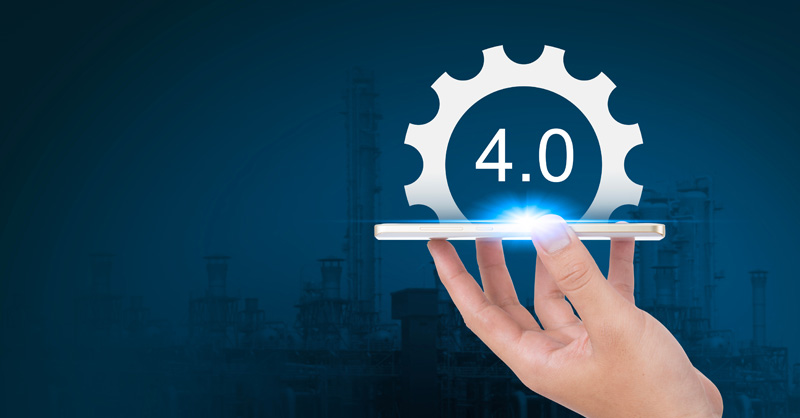Professor Jan Godsell (Loughborough Business School)
The UK was at the heart of the first industrial revolution. Powered by coal, the UK was able to move from craft to mass production, creating new jobs, increased wages, and improved standards of living. Consumption driven economic growth was fuelled by huge increases in productivity. Key to the UK’s success, was its global access to raw materials, its local access to energy (coal), and innovation to develop the technology to enable the shift to mass production.
Little thought was given to the broader environmental and social considerations, with cities engulfed in smog, and children working in factories. Over time, these issues were addressed but the long-term impact is only beginning to be fully realised.
We are now in the era of Industry 4.0, or the 4th industrial revolution. Initially a name for the German Government’s strategy, to reinvigorate German manufacturing post-2008 global economic crisis, the term has gained widespread popular appeal. At its core was the adoption of digital technologies to create the Internet of Things (IoT). Over the last decade, with increased awareness of the environmental and societal impacts of consumption driven economic growth, it signifies a more fundamental shift.
There is increasing recognition of the need to decarbonise the manufacturing ecosystem if the UK is to meet its Net Zero 2050 goals. This is driving the adoption of low carbon energy sources, and more resource efficient methods of production. It is also creating a more fundamental change. United Nations Sustainable Development Goal (SDG) 12, identifies the need for more responsible consumption and production.
There is a pressing need to consider new models for economic and business development that decouple consumption from production. Business models have traditionally been built on ‘linear economy’ models where raw materials are mined, converted into components, assembled into products, that are used, and sent for recycling, energy recovery and land fill at end of life. As consumers have valued newness over utility, and manufacturers have sought to make products as cheaply as possible, the ability to reuse, repair and remanufacture products has become more difficult.
The future manufacturing ecosystem is built on the principles of a ‘circular economy’. An economy where we seek to keep products in their highest possible value state, through reuse, repair and remanufacture. A future where recycling is a last resort. Digital technologies enable the more effective monitoring of the physical location of assets, their condition and usage. They can also enable digital payment, and technical support.
Innovation is key to supporting the transition to a more circular economy. It starts with the innovation required to develop the new digital technologies to enable the transition. Innovation may be more transformational and involve the development of new business models. HP Instant Ink is a great example of how IoT technology in home printers enables the provision of home printing as a service.
For a fixed rate, subscribers can print an agreed number of pages per month with a guarantee that they will never run out of ink. The ink levels are remotely monitored, and new cartridges sent in the post when required. Used cartridges are returned to be refilled and reused. These new business models are often run in parallel with existing business models (e.g., traditional purchase of ink cartridges) that may use innovation to improve the productivity and sustainability of existing manufacturing processes or supply chains.
At the heart of the UK manufacturing ecosystem, the Midlands can lead the UK in creating the first regional manufacturing ecosystem, that is low carbon and supports the principles of the circular economy. Using innovation to create new business models, products, services, and technologies that enable economic prosperity in a responsible and sustainable way. Through the Made Smarter Innovation (MSI) funded Interact Project, Loughborough University are working with key stakeholders in the region to develop a 2040 Future Digital Manufacturing Ecosystem roadmap for the Midlands. Be part of the change, reach out and start to Interact.

